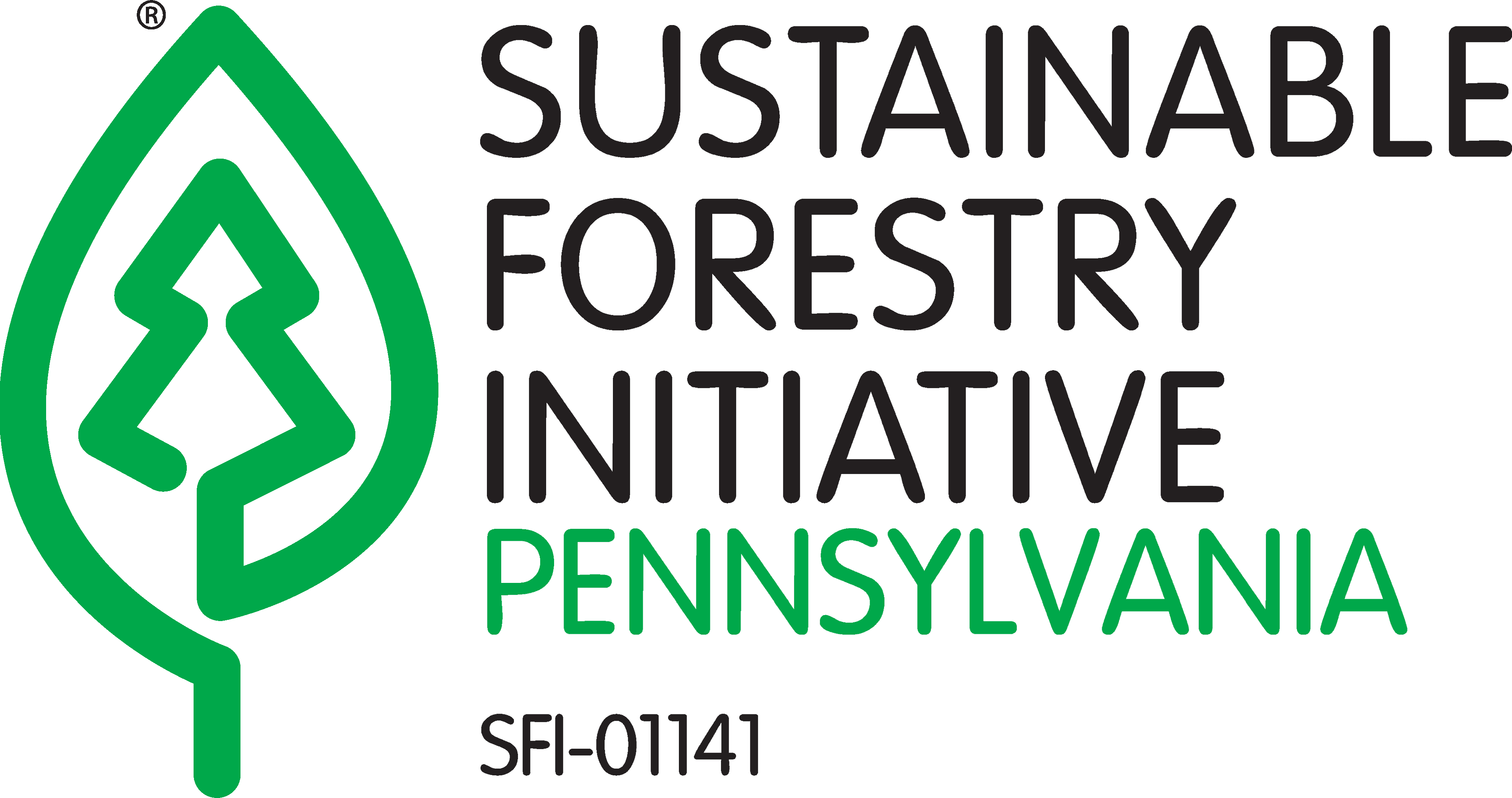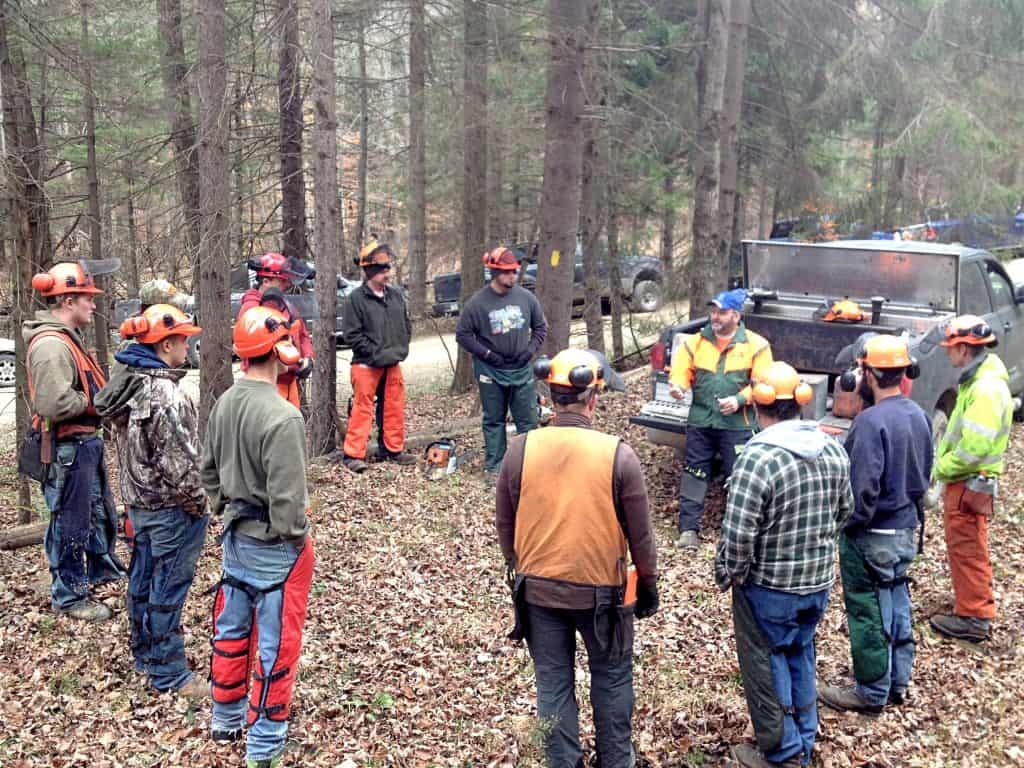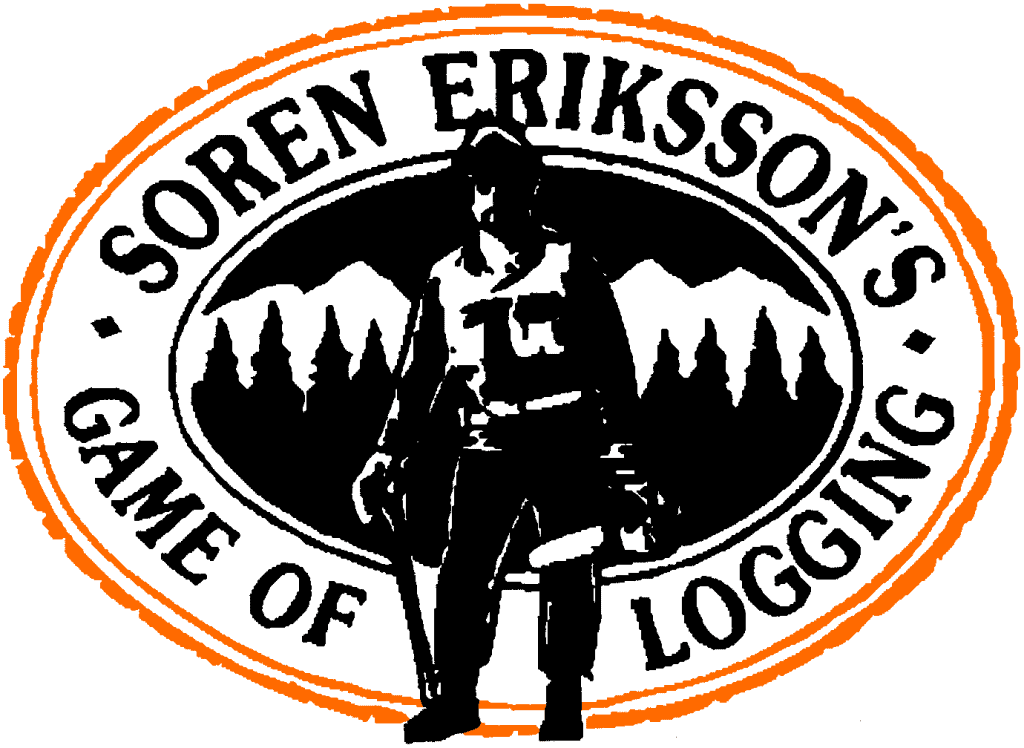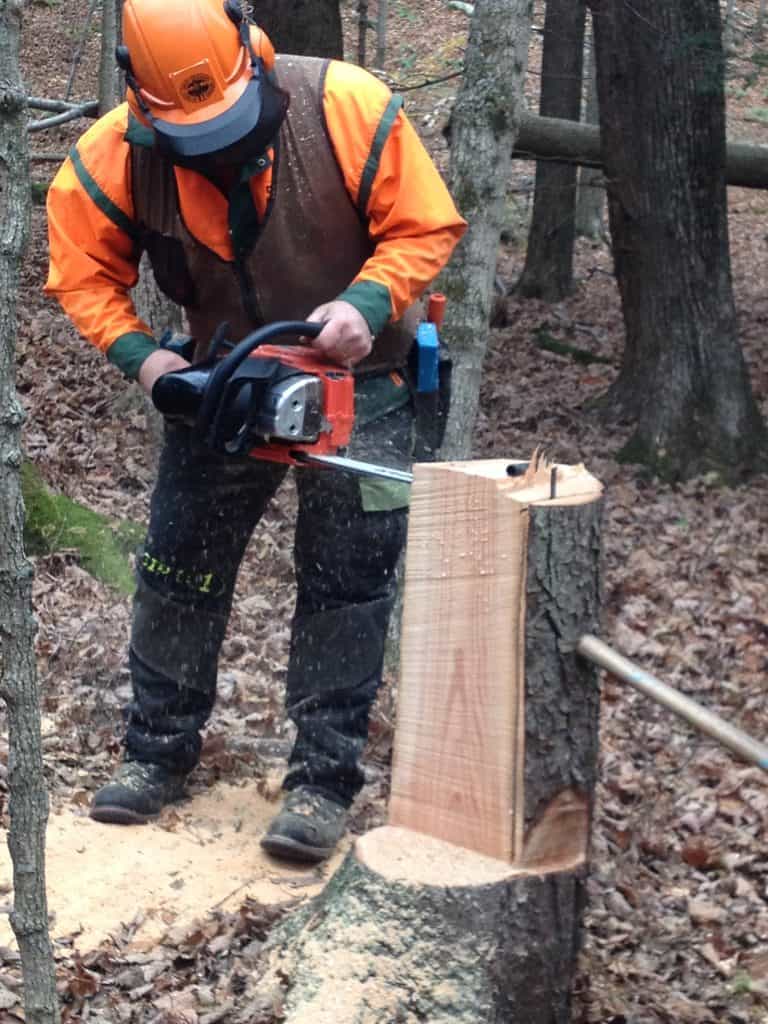
LOGGING SAFETY RESOURCES >> CHAINSAW SAFETY RESOURCES
PERSONAL PROTECTIVE EQUIPMENT
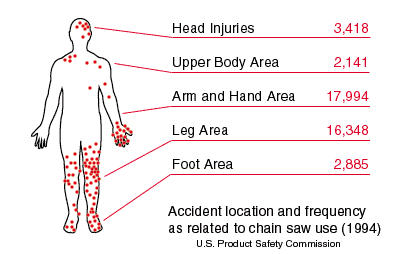
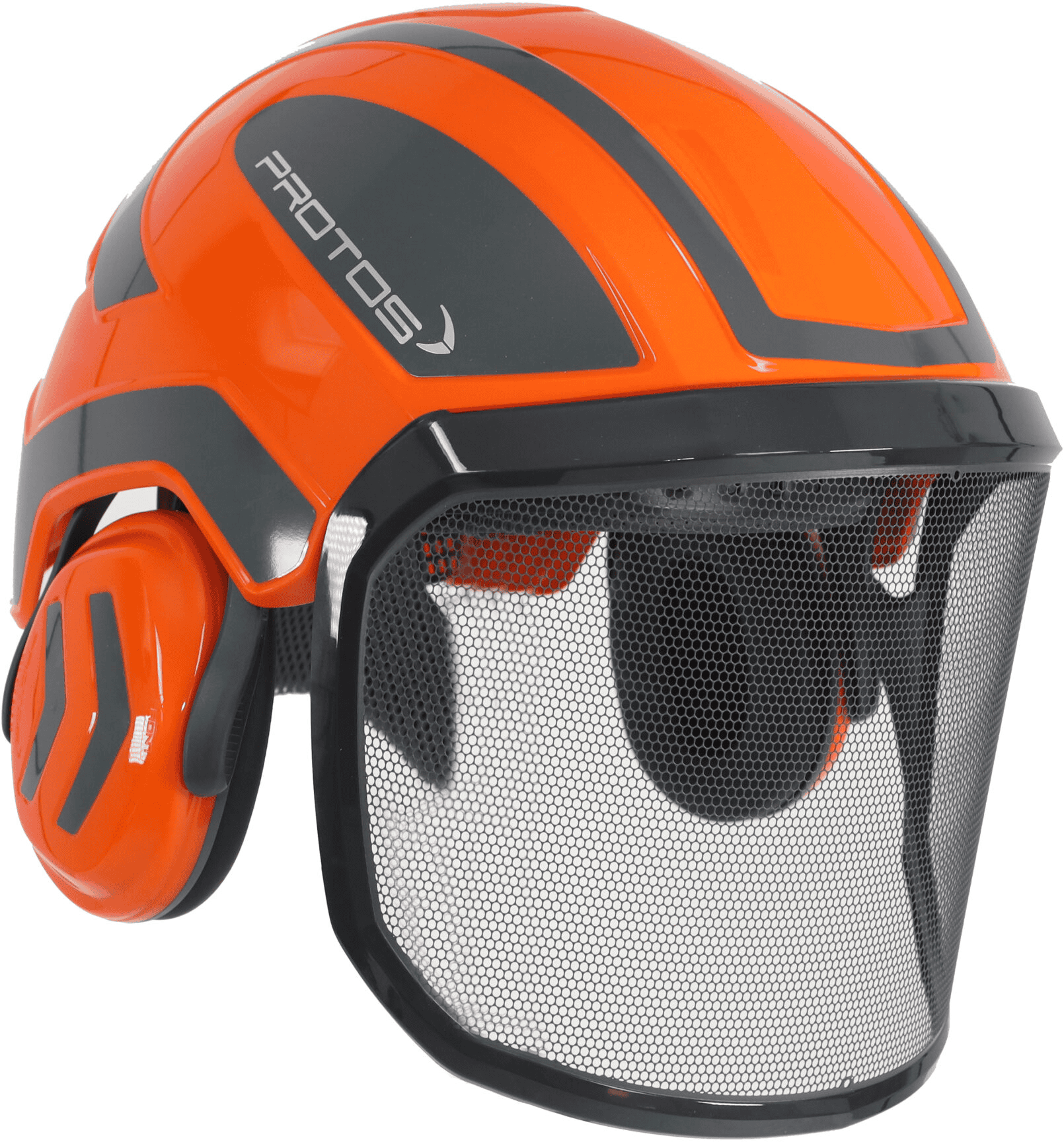
Chainsaw accidents can happen in the blink of an eye, and your personal protective equipment (PPE) may be the only thing between your body and a powerful cutting chain spinning at 60-90 feet per second, or a flying limb. Employers are required by OSHA to provide, at no cost to the employee, adequate PPE for assigned tasks. PPE Includes:
- Should be labeled to meet ANSI Z89.1-1969
- OSHA Directive STD 01-06-005, dated June 20, 1994 grants religious exemption for hard hats, but employers must still instruct these employees about overhead hazards.
- Must be labeled to meet ANSI Z87.1-1968
- Employees do not need to wear separate eye protection where face protection covers both, unless conditions require it.
- Required when employees are exposed to an 8-hour time-weighted average (TWA) of 85 decibels or greater (chainsaws produce between 100-120 decibels).
- Should meet or exceed ASTM F1414 standard
- Should be replaced if inner materials are cut or torn
- Should meet or exceed ASTM F1458 standard
- Cut resistant and waterproof
- Employers are not required to provide boots to employees, but must ensure they are worn
- Cut and puncture resistant
- Required for employees handling wire rope
- Enhances worker safety by making them easily detectable by other workers in various conditions, including dense forests and low-light environments.
- OSHA Personal Protective Equipment for Loggers
- OSHA Personal Protective Equipment Manual
- OSHA Personal Protective Equipment Fact Sheet
- PPE Selection Assessment
- OSHA Hearing Conservation Manual
- Sample Hearing Conservation Program (Required under OSHA Hearing Conservation Standard [29 CFR§1910.95])
- Pennsylvania Bureau of Forestry PPE Policy
- Chainsaw Personal Protective Equipment [Video]
- Chainsaw Personal Protective Equipment [Video]
- Chainsaw Chaps Demonstration [Video]
GAME OF LOGGING
The Game of Logging is a world-renowned chainsaw training course that was first developed by a Swedish logger named Soren Eriksson in the 1960s to increase attention to safety and reduce logging injuries. The serious “game” combines education with variety, repetition, hands-on practice and a bit of competitive spirit.
This training consists of four levels and a specialized Storm Damage training. The program covers safety apparel and hazard assessment, developing a plan for felling trees to include handling leaners and other problem situations, identifying and handling overhead hazards, planning escape routes, controlling notch size and hinge thickness, and proper felling techniques. All levels must be taken sequentially, ideally with at least 2 months in between levels to give participants the opportunity to practice what they have learned. Once an individual completes levels 1 and 2, they are eligible to take Storm Damage training.
Game of Logging Level 1 is a core training requirement of the PA SFI Professional Timber Harvester Training Program.
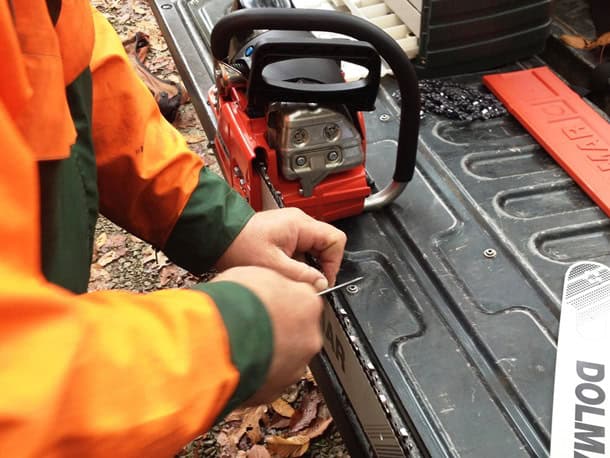
Regular inspection and maintenance of chainsaw equipment ensures that it will operate in a safe and efficient manner and lengthens its lifespan. At a minimum, inspections should be conducted prior to each work shift. Chainsaws should be maintained and adjusted in accordance with the manufacturer’s instructions.
- Oregon Chainsaw Maintenance and Safety Manual
- Sharp Advice for Chainsaw Owners
- Saw Chain Anatomy [Video]
- Husqvarna and The Science of Saw Chains [Video]
- Proper Chainsaw Sharpening Techniques [Webinar]
- The Art and Science of Saw Chain Sharpening [Instructional DVD]
- Stihl Chainsaw Safety, Operation & Maintenance [Video]
- Chainsaw Safety Features [Video]
- Chainsaw Maintenance [Video]
- Chain Tension Adjustment [Video]
- 2-Stroke Engines and Ethanol [Video]
- Chain Sharpening Demonstration [Video]
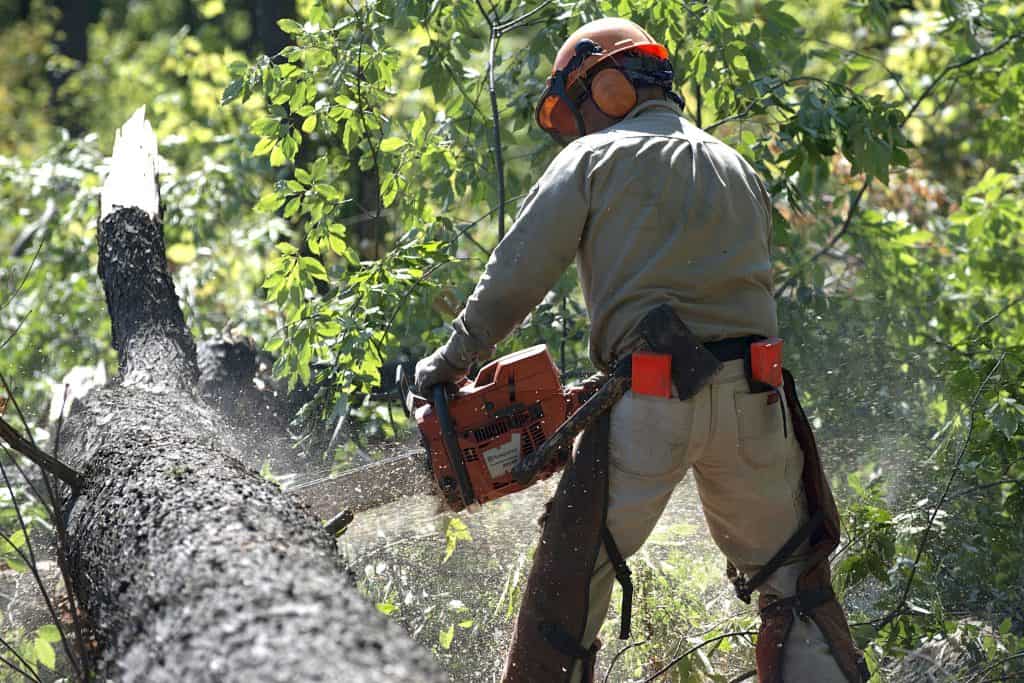
The chainsaw is one of the most efficient and productive portable power tools used in the industry. It can also be one of the most dangerous. If you learn to operate it properly and maintain the saw in good working condition, you can avoid injury as well as be more productive. Never attempt to use a chainsaw until you are familiar with its hazards, special safety requirements, and techniques. Always operate your chainsaw in accordance with the manufacturer’s instructions. The following guidelines are not substitutes for proper training, experience, and common sense.
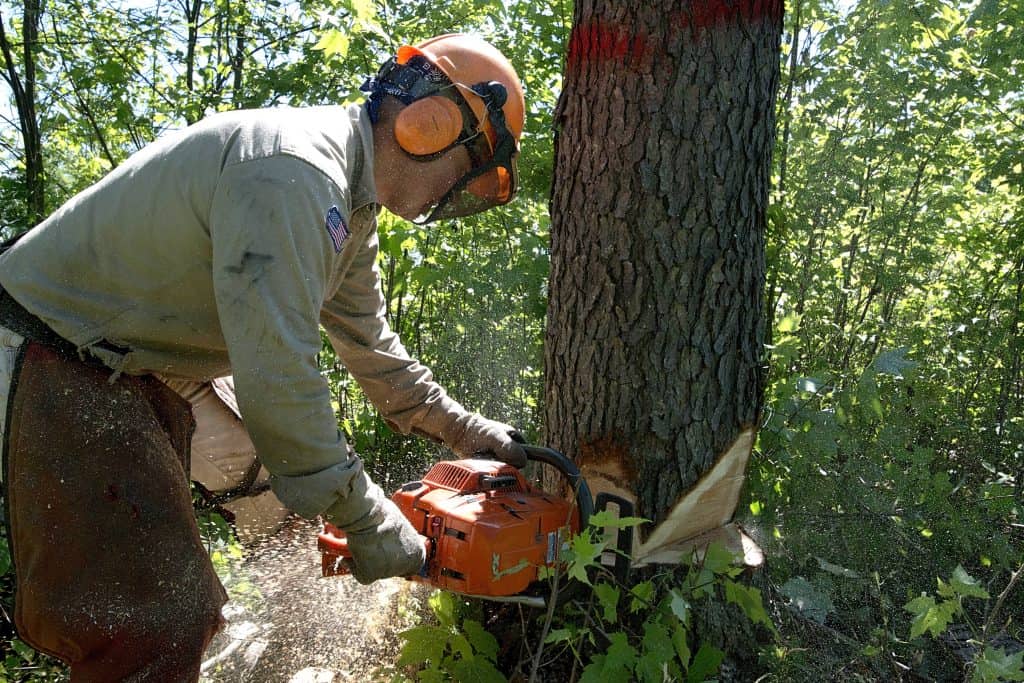
A plan of some sort, no matter how simple, is crucial to accomplishing any task, and tree felling is no exception. In fact, given the inherent dangers and hazard of logging operations, the case can be made that planning is even more important and crucial to safe, efficient operations in the profession. Felling – getting an upright tree on the ground where you want it, when you want it, and in the manner you want it – cries out for some type of planning process. We recommend the 5-Step Felling Plan taught in Game of Logging trainings.
Disclaimer: The material and resource links provided on this site are for informational use only, and should neither replace the advice of qualified manufacturer, medical, or legal professionals, nor be taken as recommendations, endorsements or legal advice. Use this information at your own risk, and always be sure to consult with an expert. This Site contains information and content from third parties. Information contained herein regarding any specific person, commercial product, process, or service by trade name, trademark, manufacturer, or otherwise, does not constitute or imply its endorsement, recommendation, or favoring by the Pennsylvania SFI Implementation Committee.
